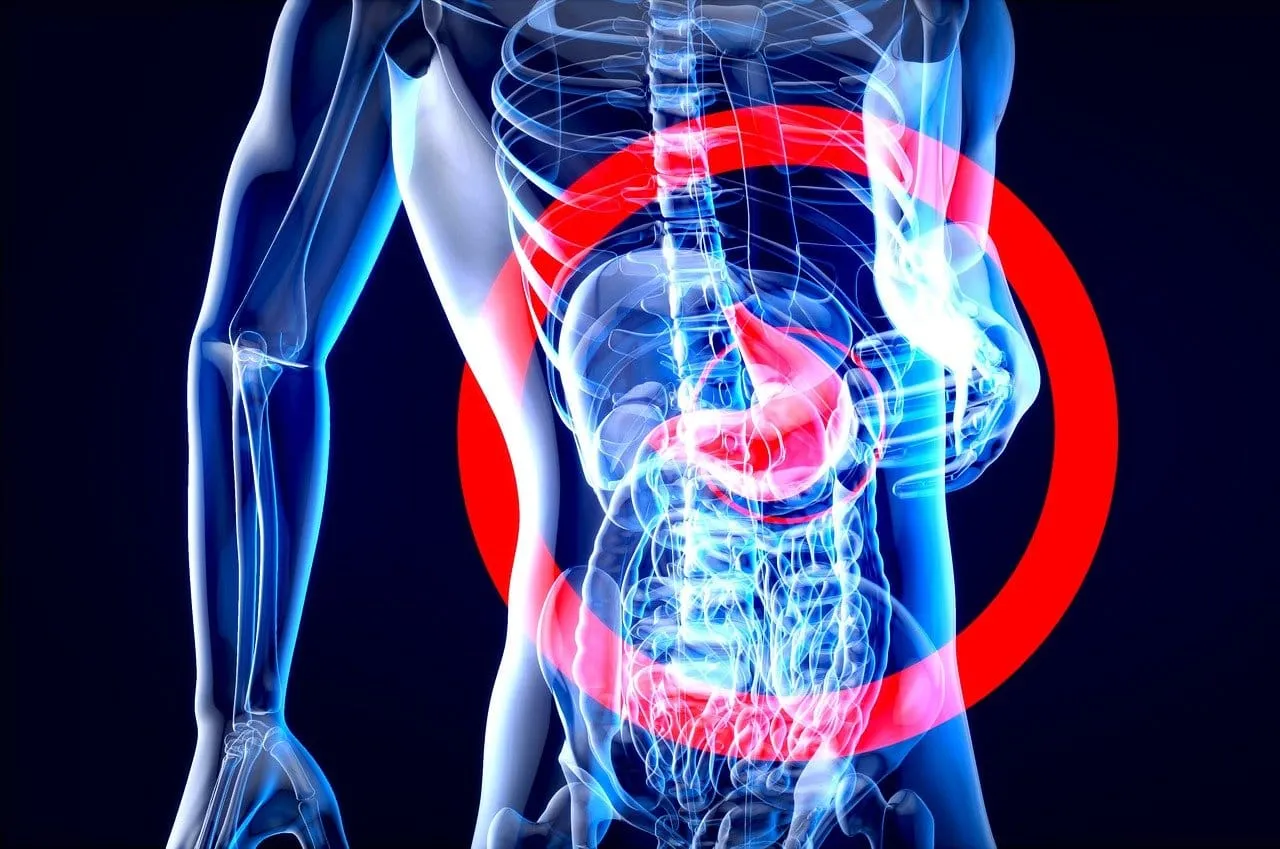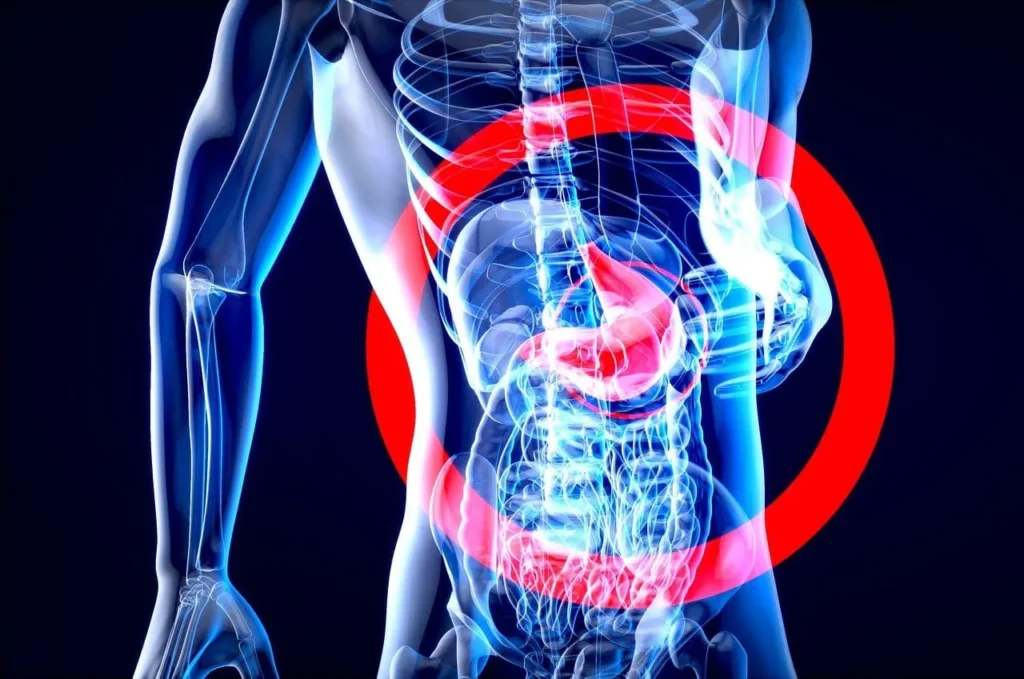Have you ever considered that those frequent bouts of indigestion might be more than just a nuisance? Could there be a deeper link between your digestive troubles and your liver health? Understanding this connection is crucial to maintaining not just your digestive health, but your overall well-being. Your liver is a powerhouse organ that performs critical functions, such as detoxifying the blood, metabolizing nutrients, and producing bile, which is essential for digestion. So, if you’re experiencing poor digestion, it might be worthwhile to take a closer look at your liver.

Understanding Digestion and Its Role in Overall Health
Before exploring the intricate relationship between digestion and liver health, it’s essential to grasp what digestion involves. When you eat, your body embarks on a complex journey to break down food into nutrients. These nutrients provide energy, help with body repair, and support growth. Healthy digestion is crucial for absorbing these nutrients effectively.
The Digestive Process
The process begins in your mouth, where mechanical digestion occurs as you chew. Saliva starts to break down carbohydrates. Your stomach then uses acids and enzymes to further digest the food. The primary phase, though, happens in the small intestine, where enzymes and bile from the liver and pancreas continue the breakdown process. The nutrients are absorbed into your bloodstream from the small intestine, while the waste continues to the colon.
Symptoms of Poor Digestion
Recognizing poor digestion is straightforward if you’re familiar with the symptoms. You might feel bloated or experience uncomfortable gas, stomach cramps, heartburn, or constipation. These symptoms, though common, shouldn’t be brushed off as trivial. They can be indicators of deeper issues like digestive disorders or liver problems.
The Liver’s Essential Functions
Your liver performs vital roles that go beyond detoxification. Understanding these functions can shed light on why liver health is crucial for digestion and overall well-being.
Role in Metabolism
The liver’s participation in metabolism is indispensable. It converts nutrients from your diet into substances your body can use, stores these nutrients, and supplies cells with the necessary elements. It metabolizes carbohydrates, fats, and proteins. For example, your liver regulates blood sugar levels by converting excess glucose into glycogen for storage.
Protein Synthesis and Waste Removal
Proteins are crucial for many body functions, and your liver synthesizes these proteins. Additionally, your liver transforms ammonia, a byproduct of protein metabolism, into urea, which is then excreted in urine. This waste management is vital in preventing harmful toxin accumulation.
Bile Production and Its Importance
One of the key substances your liver produces is bile, which aids in digesting fats and absorbing fat-soluble vitamins like A, D, E, and K. Bile is stored in the gallbladder until it’s needed during digestion. Any impairment in bile production or flow can directly affect your digestion and nutrient absorption.
The Connection Between Digestion and Liver Health
How Liver Health Affects Digestion
If your liver is compromised, several digestive processes can falter. For instance, inadequate bile production can lead to poor fat digestion and nutrient absorption, resulting in deficiencies and digestive discomfort.
Digestive Symptoms Linked to Liver Disorders
Certain liver diseases can manifest symptoms commonly attributed to poor digestion. For example, chronic fatigue, nausea, and abdominal pain might not just be random symptoms but could indicate a liver issue. Jaundice, a condition marked by yellowing skin and eyes, is a tell-tale sign of liver disease.
Common Liver Diseases Affecting Digestion
Several liver diseases can contribute to poor digestion. Let’s take a look at a few:
-
Cirrhosis: This condition involves liver scarring, which obstructs blood flow, affecting liver function and thus digestion.
-
Hepatitis: Viral infections like hepatitis can inflame the liver, impairing bile production and leading to digestive problems.
-
Non-Alcoholic Fatty Liver Disease (NAFLD): This condition is characterized by fat accumulation in the liver and often linked to obesity and metabolic syndrome.
Investigating Digestive Symptoms for Liver Health Clues
Evaluating Digestion-Related Symptoms
When experiencing unusual digestive symptoms, it’s essential to think about your liver. Consider seeing a healthcare professional if common interventions like dietary changes or antacids aren’t effective. Monitoring symptoms can offer critical clues.
Diagnostic Tests for Liver Function
There are several tests doctors may use to investigate liver health:
-
Blood Tests: These can assess liver enzyme levels, bilirubin, and protein levels, indicating liver function.
-
Imaging Tests: Ultrasounds, CT scans, and MRIs can help visualize the liver’s size and structure to detect abnormalities.
-
Liver Biopsy: In some cases, a small tissue sample might be taken to evaluate liver damage.

Taking Charge of Your Digestive and Liver Health
Dietary Adjustments
A nutrient-rich diet can support both your liver and digestive health. Incorporate plenty of fiber, lean proteins, and healthy fats while limiting processed foods and sugars.
Probiotics and Digestive Health
Probiotics can contribute to a healthy gut flora, aiding digestion. Supplements or fermented foods like yogurt, kefir, and sauerkraut can be effective.
Liver Supportive Supplements
Certain supplements, like milk thistle or artichoke extract, are known for their liver-supportive properties. However, always discuss these with a healthcare provider before starting, as they aren’t universally effective and can interact with other medications.
Lifestyle Changes for Liver Health
Apart from diet, other lifestyle changes can impact your liver positively. Regular physical activity, staying hydrated, avoiding excessive alcohol, and limiting exposure to toxins can go a long way.
Conditions that Mimic Liver-Related Digestive Symptoms
Understanding conditions that exhibit similar symptoms to liver-related digestive issues can help in obtaining a correct diagnosis. Such illnesses include:
-
Irritable Bowel Syndrome (IBS): Can mimic liver issues through symptoms like cramps, bloating, and diarrhea.
-
Gallbladder Disease: May present with similar pain and digestive discomfort.
-
Pancreatic Disorders: Issues like pancreatitis can result in abdominal pain and digestive problems akin to those of liver conditions.

When to Consult a Healthcare Professional
Recognizing When Symptoms Aren’t Just Temporary
If your symptoms persist, are severe, or are accompanied by other signs such as jaundice, it’s critical to seek medical attention. Tracking symptoms over time can be beneficial for discussions with your doctor.
Preparing for a Doctor’s Visit
When consulting a healthcare professional, being prepared can help streamline the process. Here’s a quick checklist of information to have on hand:
- A detailed list of symptoms and their duration
- Dietary and lifestyle habits
- Family history of liver or digestive issues
- Medication or supplement use
Conclusion
The connection between poor digestion and liver health underscores the importance of monitoring both closely. It’s about tuning into what your body is telling you and understanding that seemingly simple issues might have complex underpinnings. By fostering healthy habits, recognizing symptoms early, and working with healthcare professionals, you can maintain both your digestive and liver health, ensuring a healthier life. Taking proactive steps can make a significant difference, so your proactive engagement is a pivotal part of this process.



